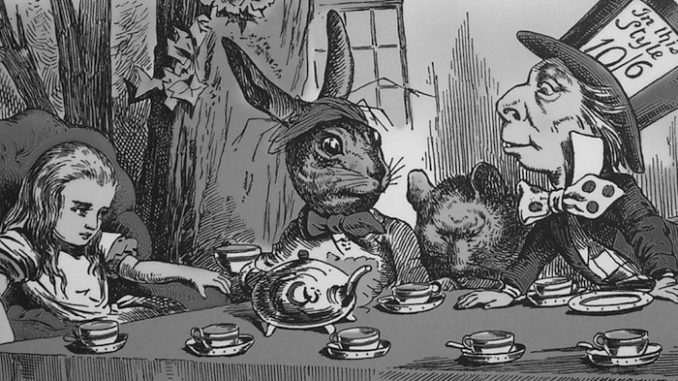
Michelle Barbero, Staff Writer |
On Tuesday, February 21, the Resident Advisors of Littell Hall hosted an “Un-Birthday” party. Students gathered in Lee Hall’s Center for Multicultural Experiences at 8:30 p.m. to be educated on how birthdays are celebrated around the world. This party was part of a series of programs that the Resident Advisors of Littell put together to help students work on their multiculturalism and inclusion.
Tables were set up around the Center for Multicultural Experiences, with each table consisting of a station that represented a certain culture. Students engaged in games and activities as they not only learned about birthday celebrations around the world, but experienced them as well. Foods, ranging from cupcakes to noodles, were also served. Birthday songs were played in different languages throughout the party as well.
The Resident Advisors posted interesting facts about birthday traditions from different countries at each station. At one station, students created flower crowns, an important part of the birthday tradition in Holland. In Holland, when a person turns five, ten, fifteen, twenty, and twenty-one, their birthdays are considered “crown years.” The birthday boy or girl is given an extravagant gift on “crown years.” Here, students created flower crowns using brightly colored tissue paper and pipe cleaners in honor of Holland’s tradition.
Another activity consisted of students having to pick a cup that hid an item underneath it. When the cup was chosen, the student would be read an important insight about the future. The purpose of this activity was to allow people to experience Korea’s tradition, called Doljanchi. Doljanchi takes place on a baby’s first birthday and it is of high importance in Korean culture. During this tradition, a baby is put in front of various foods and items and whichever item that the baby picks up from the table predicts the baby’s future.
One of the major highlights of the party was a green piñata. Growing up in America, most people only know the piñata as a form of entertainment at birthday parties. Piñatas are known to come in many shapes, sizes, and colors, even sometimes resembling cartoon characters; breaking the piñata means candy for everyone. But, in Mexico, it is common for piñatas to be a star with seven points. Each point symbolizes one of the seven deadly sins and it is seen as good luck when somebody breaks the piñata. Luckily, the piñata at the “Un-Birthday” party that resembled a traditional Mexican piñata and was broken, spreading good fortune and treats.
Other birthday celebrations that were discussed included countries and cultures such as the Amish, China, Japan, Central and South America, Malaysia, and Ethiopia. SUNY Oneonta’s campus is home to a diverse student body and it is important to realize that there are many traditions that can be found among individuals. Birthday traditions carry major significance in most cultures and recognizing the different ways in which cultures celebrate birthdays creates points of unity among the student body.
Leave a Reply